Should a secret pleasure ever be shared? Spoiler alert: Susanna’s secret, unknown to her husband Gil, is that she smokes. And when, in his opera Il segreto di Susanna, Ermanno Wolf-Ferrari finally gets her alone with her longed-for cigarette, he makes it feel like nothing in heaven or earth could top the sensuous bliss of that first solitary drag. Clarinet and flute coil languidly upwards, the air hazes over with muted strings, and the celeste adds the little spasms of tingling pleasure that Wolf-Ferrari’s contemporary Richard Strauss saves for love at first sight. Salome has nothing on this. By rights, Il segreto di Susanna ought to carry a government health warning.
Anyway, here’s Opera Holland Park, hanging around in a West London playground and just handing out this addictive stuff like it’s the most harmless thing in the world. If I sound aggrieved, it’s because Il segreto di Susanna used to be my own private operatic vice. Every opera-buff has one: the pet obscure opera that they pull out on some crackly LP to bore their friends, and against whose neglect they fulminate in vain. So naturally, when a company as enterprising as Opera Holland Park mounts a production so perfect, so spirited and so loving that it stands a decent chance of propelling that cherished secret into the mainstream, we’re a bit miffed. Not fair: I liked it before it was cool.
In truth, if Il segreto di Susanna has never (apart from its lollipop overture, anyway) been quite as popular as it deserved, it’s also probably never had a UK production more affectionate than John Wilkie’s new staging, or a conductor who handles it more playfully than John Andrews. Designs by Takis establish an atmosphere of postwar dolce vita, and alongside two wholly engaging principals — Richard Burkhard alternately blustery and burnished as Gil, and Clare Presland’s kittenish, beguiling Susanna — there’s the doting silent presence of John Savournin as their butler Sante. Savournin can raise a laugh with a flick of the little finger, and Sante’s domestic interventions — a discreet spritz of perfume, a match shared with an unhappy mistress — rubbed the sharp edges off this comedy of marital misunderstanding, ready for the final, light-headed rush as husband and wife share a conjugal bifter before scampering off to make good on the promise of that frisky overture. Some things really are better à deux.
The link to the second half of this double bill — Tchaikovsky’s fairy tale one-acter Iolanta — proved to be that same redeeming impulse: compassionate love. Iolanta is an opera that hovers on the fringes of the repertoire, and there’s nothing flatter than third-rate Tchaikovsky. But from the sighing woodwind prelude to a climactic duet between Iolanta (Natalya Romaniw) and Vaudémont (David Butt Philip) that held the audience transfixed without ever seeming to milk the moment, the entire company treated it like it was up there with Onegin or Queen of Spades.
The story is pure pathos — Princess Iolanta, unaware that she has been blind from birth, lives in isolation until first love miraculously allows her to see — and Tchaikovsky treats it so tenderly that it’s almost painful. Suspension of disbelief is more than usually vital, but conductor Sian Edwards made chamber music with the singers. Takis’s sets, abstract angular enclosures of neon light and plastic sheeting that mirrored Iolanta’s own limited perceptions, provided the necessary element of fantasy. Add unfussy, stylised direction from Olivia Fuchs and the singing simply took wing. And not just Romaniw and Butt Philip (though they were magnificent), or Mikhail Svetlov’s noble, conflicted King René. Even the chorus soared. I walked out feeling simultaneously harrowed and elated. Damn it all, OHP, why do you have to be so good?
Earlier in the week, as a sort of farewell flourish from its (lamentably) ousted artistic director David Pountney, Welsh National Opera brought Prokofiev’s War and Peace to London. Any production of this flawed but mighty opera ought to be a major occasion, and it was good to see a packed house. Good, too, that Pountney’s basic but effective staging held up so well at Covent Garden, despite some hiccups with surtitles and an occasional roughness between orchestra and stage (Tomas Hanus conducted) that might have been a consequence of re-heating the show in a strange venue, months after the initial run.
But there was a sense of inevitability that I don’t recall when I saw it last year in Birmingham. The chorus was fearsome; Lauren Michelle, as Natasha, is still floating her lines with supple, luminous expression; Jonathan McGovern’s death scene as Andrei quivered with cold sweat. And the jaw still dropped at Pountney’s closing ballet for Kalashnikov-toting Maoist cadres wearing big red stars — in accordance with the arts-sector convention that totalitarian mass murder is kitsch and fun, as long as it’s left-wing.
Got something to add? Join the discussion and comment below.
Get 10 issues for just $10
Subscribe to The Spectator Australia today for the next 10 magazine issues, plus full online access, for just $10.
You might disagree with half of it, but you’ll enjoy reading all of it. Try your first month for free, then just $2 a week for the remainder of your first year.

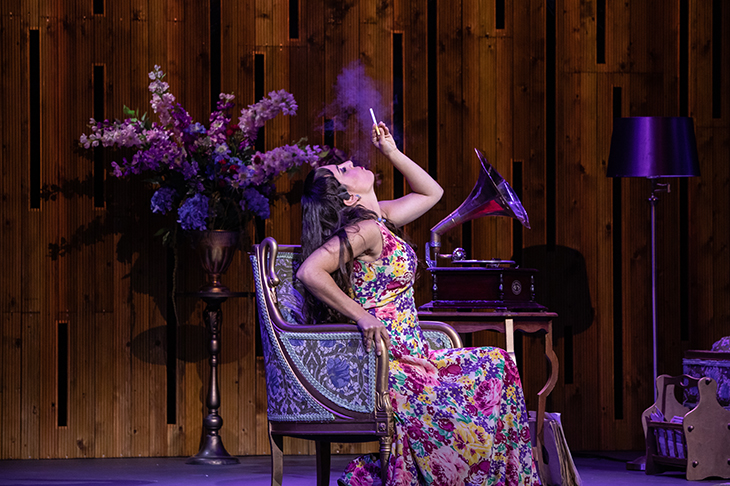
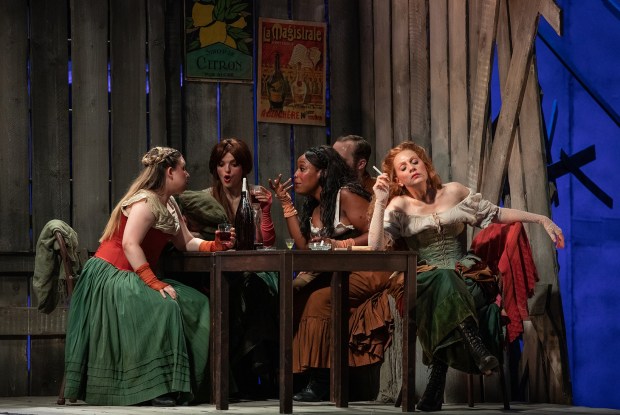
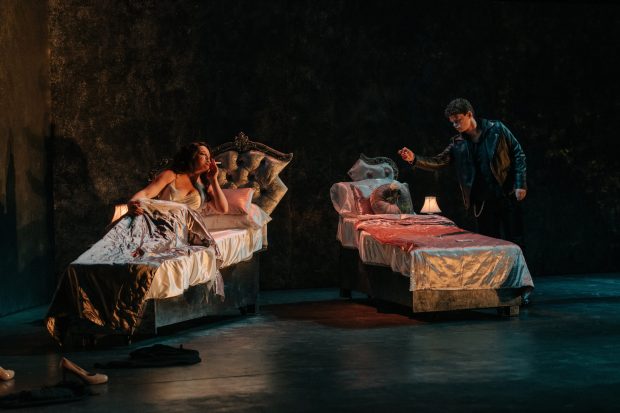
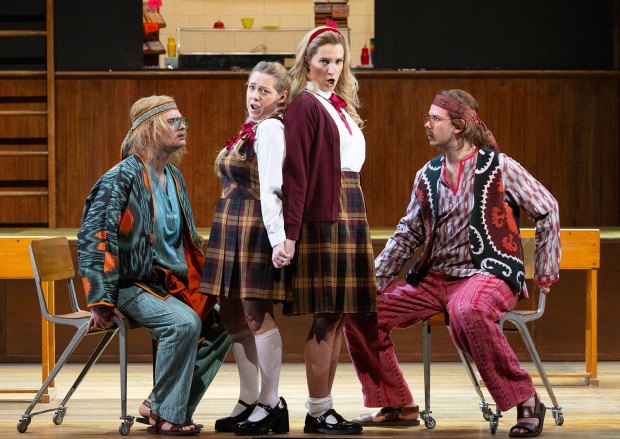
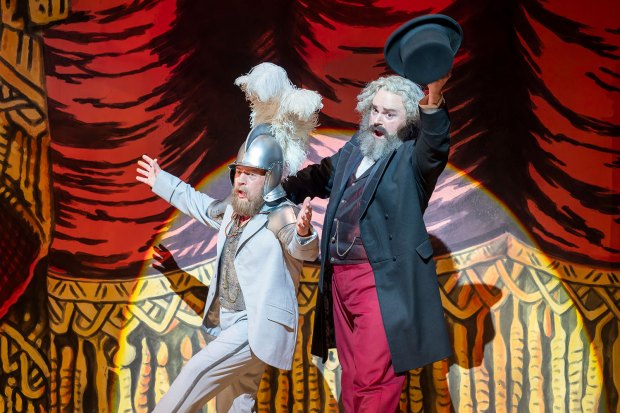
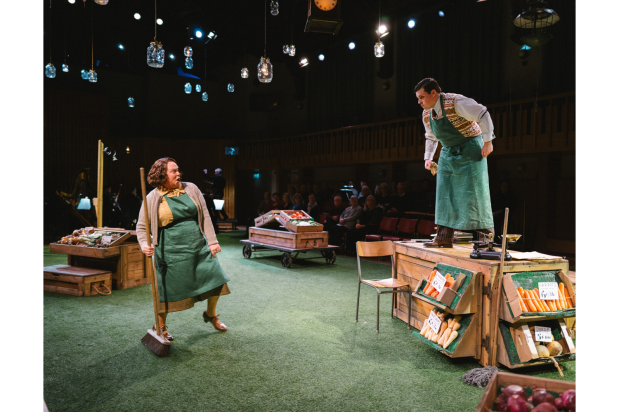







Comments
Don't miss out
Join the conversation with other Spectator Australia readers. Subscribe to leave a comment.
SUBSCRIBEAlready a subscriber? Log in